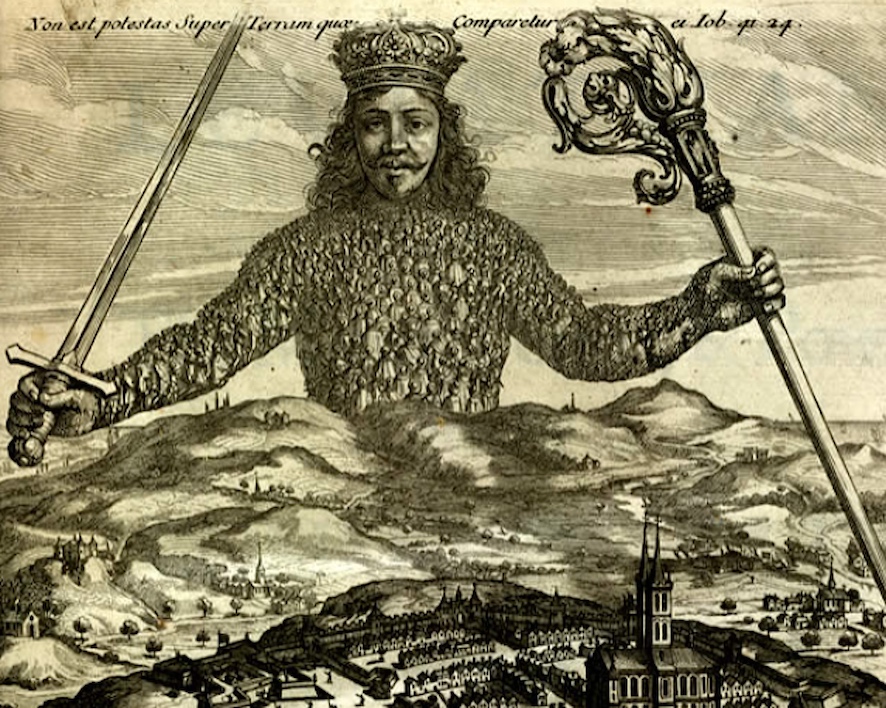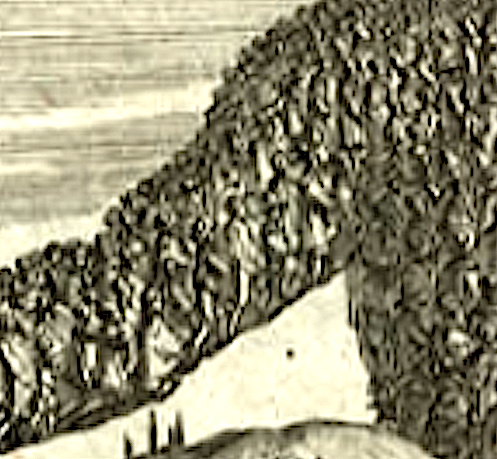身体の分離を通した死の克服
The king never dies, by Ernst Kantoriwicz

身体の分離を通した死の克服
The king never dies, by Ernst Kantoriwicz

「しかし、現実に運用された法や法的手続の領域について言えば、事態は理論におけるよりも いっそう複雑 であった。空位の顕職を担う神的存在(あるいは地上におけるこの代理者)が召喚され、責任を負い、刑罰を受ける といったことは実現不可能である。ここから、実際問題として、団体の頭の連続性に関する問題がもち上が った。ローマ法学者や教会法学者はこの難問に突き当たり、その結果、〈分離諸身体〉(corpora separata) の概念 のような解決方法が生まれた。ここにおいては、頭、四肢、頭と四肢の合一体のそれぞれが、別個の身体と 団体としての単位とを形成すると考えられていが。また、ローマ法学者や教会法学者のみならず、コモン・ ローの法学者たちにとっても、頭の連続性という問題は解決困難で、困惑させるものであった。イングラン ドの『年書』は——特に十五世紀のものは——王座の裁判官の苦境をきわめて明確に映し出している。彼ら は、団体に組み入れられた構成員に関しては、団体理論とその用語法を進んで受け容れたが、「頭だけ」に も団体的性格を認めることについては、はるかに消極的だったのである。たとえば、1482年に審理され たノリジ市の事例において、首席裁判官ブライアンは、次のような議論を提出している。「もし市長が死去 したならば、団体は不完全なものになる。そして、共同体が別の市長を任命するまでは、団体は無能力な存 在である」。かくして、市長の死去は空位期間を生み出し、このことによってノリジの政治的身体は不完全 ものになり、団体として訴訟行為を行う資格がなくなると主張された。他方、リトルトンのような偉大な 法学者や、判事席にいた彼の同僚の法学者の幾人かは、団体とその頭の間には構造上の基本的な相違が存在 するときわめて強く感じていた。ある機会に原告が、聖堂参事会や市民の団体、「および、その継承者たち」 について語ったとき、チョーク裁判官は、リトルトンの支持を受けて、きわめて正当にも次のよう宣言し たのである」(カントーロヴィチ 1992:313 )。
「聖堂参事会は永遠なるがゆえに、先任者も継承者も存在しえない゜修道院や市民団体と同様
に、あらゆる参事会は存在し続けるのであり、死ぬことなどありえない。かくして、過去に存在した聖堂参事会と現在存在している参事会とは同じ参事会であ
り、二つは異なったものではない。したがって、同一の参事会は自らの先任者ではありえない。というのも、ある者が自らの先任者であったり継承者であったり
することは、不可能だからである」(カントーロヴィチ 1992:314 )。
+++
Within the realm of practical Law and legal procedure, however,
things were more difficult than in theory: it was not feasible
that the divine incumbent of a vacant dignity ( or his vicar on
earth) should be summoned, or be held responsible, or be penalized.
Hence practical difficulties arose concerning the continuity of
the head of a corporate body. Not only did the legists and canonists
run into trouble resulting in solutions such as the concept of
the corpora separata whereby the head, the members, and head
and members together each formed a separate body and corporate
unit, 3 but also the Common Law jurists found the problem of the
continuity of the head difficult to solve and often perplexing. The
English Year Books, especially in the fifteenth century, reflect very
clearly the predicaments of the royal judges who were quite
willing to accept the corporational doctrine and terminology with
regard to the incorporated members, but were far less willing to
conceive also of a corporational character of the "head alone."
Chief Justice Brian, for example, in a case of the City of Norwich
heard in 1482, produced the argument: "If the mayor dies, the
corporation becomes incomplete; and until the community appoints
another mayor the corporation is incapacitated."' The
death of the mayor thus created an interregnum, which rendered
the body politic of Norwich incomplete and unfit for legal action
qua corporation. On the other hand, a great jurist such as Littleton,
as well as some of his colleagues on the bench, felt very
strongly that there was a fundamental structural difference between
the body corporate and its head. When, on one occasion, a
plaintiff talked about a chapter or commonalty "and its successors,"
Justice Choke, supported by Littleton, declared quite
correctly:
The chapter can have no predecessor or successor, because the chapter
is perpetual, and every one is in being, and cannot die, any more
than a convent or commonalty;. thus the chapter which was, and the
chapter which is existing at present, are the same chapter, and not
different: thus the same chapter cannot be a predecessor of itself, for
a thing cannot be predecessor or successor to itself( Kantorowicz 1957:314-315).


トマス・ホッブス『リヴァイアサン』
の表紙:剣と杖をもつ王の身体は、細かい「臣民」から構成されている。王ないしは社会契約論に
もとづく王制度が、臣民の諸身体から「構成」されるという、この表紙は、ホッブスの社会契約論の趣旨を適切に表現していると理解することも可能である。
+++
Links
リンク
文献
その他の情報

